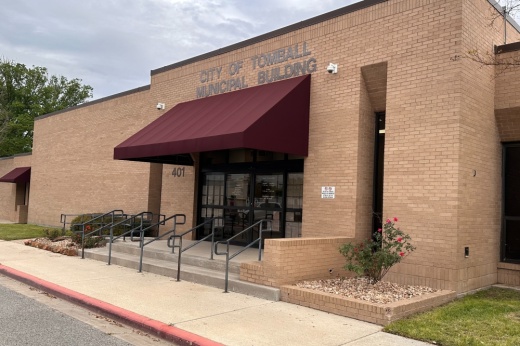What you need to know
The FY 2024-25 rate is 14.68% higher than the FY 2023-24 rate of $0.29332, according to the Oct. 7 agenda packet. The approved tax rate is also the voter-approval rate, which is the highest tax rate the city can adopt without an election.
For FY 2024-25, Tomball’s average homestead taxable value is $334,782—an 8.75% increase over last fiscal year—which means the tax on an average homestead is $1,126.09, according to the agenda packet.The context
City Manager David Esquivel said the city’s tax rate is made up of two components:
- The maintenance and operations tax rate, which helps fund the city’s general operations
- The interest and sinking tax rate, which pays for debt
“We’ve always talked about growth and [back] then growth wasn’t here,” Esquivel said. “And then now growth has hit us. We know that it has hit us because when we look at flows at our wastewater treatment plants, we have exceeded 75% of that capacity.”
Esquivel said the city will be issuing debt for projects such as the South Wastewater Treatment Plant expansion, water supply expansion projects and gravity sewer system projects. Last year, the council approved issuing $28 million in certificates of obligation—a way cities can borrow money—to fund capital projects such as the treatment plant expansion.
“The [Tomball Economic Development Corp.] absolutely helped us with trying to mitigate this tax increase,” Esquivel said. “They are paying a portion of the debt that we’re incurring for the next 20 years. ... So we continue to look for options to be able to [mitigate tax increases]. And we will continue to do that in upcoming years in the form of grants and things like that that can help us pay for these projects.”What they’re saying
- “We’ve got to do something. There’s nothing else about it,” council member Dane Dunagin said. “I don’t want to do it. ... Guys, we have kicked the can down for 10 years and that is why we’re having to bite the bullet now on some of this. And I’m sorry.”
- “There’s an issue that has to be solved, and the only way we can solve it is through the judicial use of debt and then whatever money we can pull out of the general fund to supplement spending money for engineering and things like that,” council member Randy Parr said.





